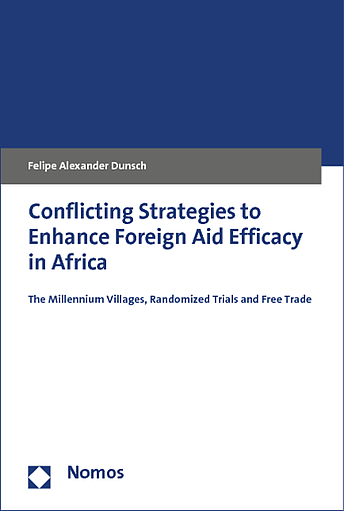englischScience is split over the reasons for foreign aid’s failure in the second half of the last century. The author elucidates the as yet confusing debate and assesses novel approaches to render international development cooperation more effective.
Optimists are convinced that sub-Saharan Africa is stuck in a poverty trap and just necessitates a massive “push” in foreign aid to be freed. One approach to put this theory into effect is the Millennium Villages.
Skeptics don’t believe in poverty traps. They rather advocate the point that bad governance is the root cause for stagnating development. Development aid must be restructured. The so-called randomized controlled trials (RCTs) are one way to explore which aid projects entail positive impacts.
Foes share the view that foreign aid is the cause for Africa’s economic shortfall. Wrong incentives, distorted markets and dependency are the products of endless money flows from North to South. In its current form, development aid must be ceased. The continent is ready to finance its development through the mechanism of free markets. This requires the liberalization of global trade and the cut-back of national subsidies in the developed world.
Felipe Alexander Dunsch is an expert on foreign affairs and development cooperation. He worked with the Delegation of the European Union to the United Nations, the World Bank and internationally operating political consulting companies.
Die Wissenschaft ist gespalten über den Grund des Scheiterns der Entwicklungshilfe der zweiten Hälfte des 20. Jahrhunderts. Dieses Buch hellt die bisher unübersichtliche Debatte auf und bewertet die neuesten Ansätze, internationale Entwicklungszusammenarbeit effektiver zu gestalten.
Optimisten sind überzeugt, dass das subsaharische Afrika in einer Armutsfalle gefangen ist und nur durch einen massiven Schub von Hilfsgeldern daraus befreit werden kann. Ein Ansatz, diese Idee in die Tat umzusetzen, sind die Millennium Villages der Vereinten Nationen.
Skeptiker sind der Ansicht, dass schlechte Regierungsführung die stagnierende Entwicklung bedingt. Entwicklungshilfe muss umstrukturiert werden, um wirksam zu sein. Die sogenannten Randomized Controlled Trials (RCTs) seien das Mittel, um herauszufinden, welche Hilfsprojekte den größten Nutzen bringen.
Feinde der Entwicklungshilfe sehen in ihr den Grund für Afrikas wirtschaftlichen Rückstand: Falsche Anreize, Marktverwerfungen und Abhängigkeiten seien die Produkte der endlosen Geldflüsse von Nord nach Süd.



